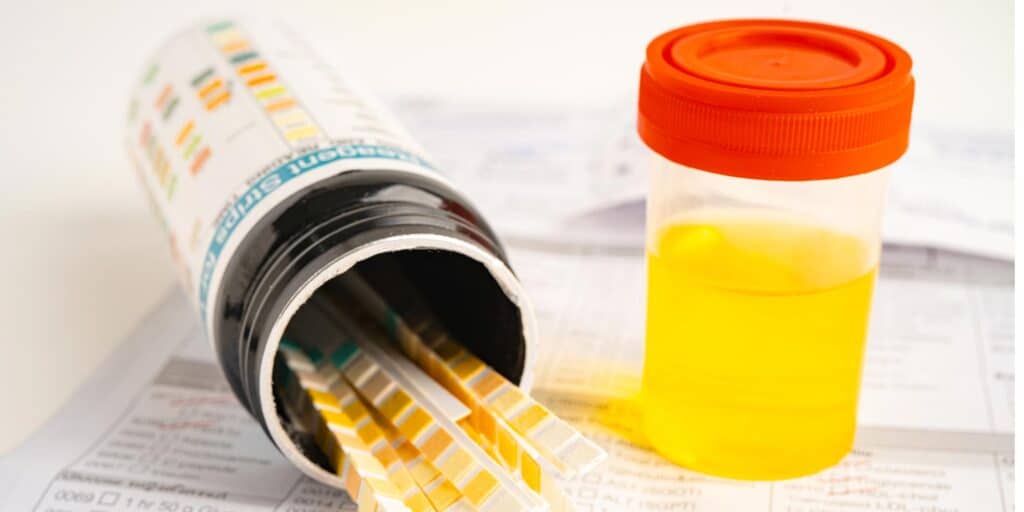Does Meloxicam Cause Weight Gain? Side Effects, Risks, and Management

All medications can have side effects, many of which subside as your body adjusts to the medication. Meloxicam is generally safe and well tolerated especially when compared to other painkillers such as opioids, but it can have some rare side effects, like weight gain and weight changes from fluid retention, which can be serious.
Learn more about meloxicam and weight gain, the side effects and risks involved, and how to manage weight changes if you take this medication for pain.
Key Points
- Meloxicam is a prescription nonsteroidal anti-inflammatory drug (NSAID) that’s used to treat mild to moderate pain from inflammatory conditions like arthritis or minor injuries.
- Like all drugs, meloxicam can have common and rare side effects, including weight gain and fluid retention (edema).
- Studies suggest that weight gain is an uncommon side effect of meloxicam, but edema can occur and can cause complications.
What Is Meloxicam?
Meloxicam is a generic version of a medication sold under the brand names Anjeso, Mobic, and Vivlodex. It’s a nonsteroidal anti-inflammatory drug (NSAID) available as an oral tablet or capsule. The oral capsule and tablet are used to treat osteoarthritis, but the oral tablet is sometimes used to treat pain associated with juvenile rheumatoid arthritis (JRA) and rheumatoid arthritis (RA).[1] This medication may be prescribed for short-term use for acute pain or long-term use for chronic pain.
Meloxicam Side Effects
Meloxicam is a safe and well-tolerated drug for many people, but it’s not without common side effects, like:[2]
- Abdominal pain
- Diarrhea
- Constipation
- Flu-like symptoms
- Respiratory infections
- Rash and itching
- Headache
- Back or joint pain
- Drowsiness
- Weight changes (gain or loss)
- Signs of an allergic reaction
There are some rare but serious side effects associated with meloxicam, including:[3]
- Swelling and weight gain from edema
- Pale skin, lightheadedness, and shortness of breath from edema
- Nausea, vomiting, muscle cramps, and heart palpitations from high blood potassium
- Nausea, vomiting, fatigue, and anorexia from kidney damage
- Fatigue, nausea, diarrhea, jaundice, and pain from liver damage
- High blood pressure
- Heart problems
- Digestive problems
- Severe allergic reaction
- Severe skin conditions like Stevens-Johnson syndrome or toxic epidermal necrolysis
Does Meloxicam Cause Weight Gain?
Meloxicam has weight gain or weight changes as a side effect, but research suggests it’s rare.[4] Many factors contribute to weight changes on meloxicam, including the individual’s metabolism, health, and lifestyle.
Discuss your concerns with your doctor if you’re experiencing weight changes from meloxicam. Some side effects subside as your body adjusts to the medication, while others may require more active management or an alternative medication.
Is Weight Gain with Meloxicam Common?

Weight gain with meloxicam is a rare occurrence. Only about 2% of the people prescribed meloxicam experience weight changes while taking it.[5] Edema, or fluid retention, is a more common weight gain with meloxicam and affects about 0.6% to 4.5% of people.[6]
There is a risk of complications with edema. Without intervention, edema can lead to serious risks like congestive heart failure. If you have existing heart problems, congestive heart failure related to edema is more likely. It’s important to discuss edema or other weight changes with your doctor.
What Factors Affect Weight Changes with Meloxicam?
Many factors can influence whether you experience weight gain or loss on meloxicam, including:
- Appetite changes
- An increase in activity due to pain relief
- Metabolic changes from the drug
- Individual metabolism
- Individual diet
- Drug interactions with meloxicam
For example, people living with chronic pain may struggle to stick with an exercise routine. On meloxicam, they may feel more comfortable exercising and lose weight. Similarly, changes in appetite can influence caloric intake, leading to weight gain or loss. It’s not well understood how meloxicam may influence weight.
How to Manage Weight on Meloxicam
If you’re gaining weight while taking meloxicam or want to prevent weight changes, here are some tips to manage your weight.
- Manage your portion sizes and avoid overeating.
- Exercise several days a week.
- Adopt new exercise routines to avoid boredom.
- Avoid high-fat, processed, or sugary foods.
- Eat a diet rich in whole grains, fruits, vegetables, and lean protein.
- Drink lots of water and avoid empty calories from sugary drinks.
- Take meloxicam as prescribed. Never adjust your dose or stop this medication without talking to your doctor.
- Discuss side effects with your doctor.
If the side effects from meloxicam are uncomfortable or interfere with your comfort or daily routine, talk to your doctor about your concerns. You may need a dose adjustment or a different medication.
Watch for Meloxicam Side Effects
Meloxicam has mild side effects that are generally well tolerated, but some people experience weight gain and edema on this medication. Maintaining a healthy weight is important for overall health, so discuss any concerns with weight changes or fluid retention with your doctor.




